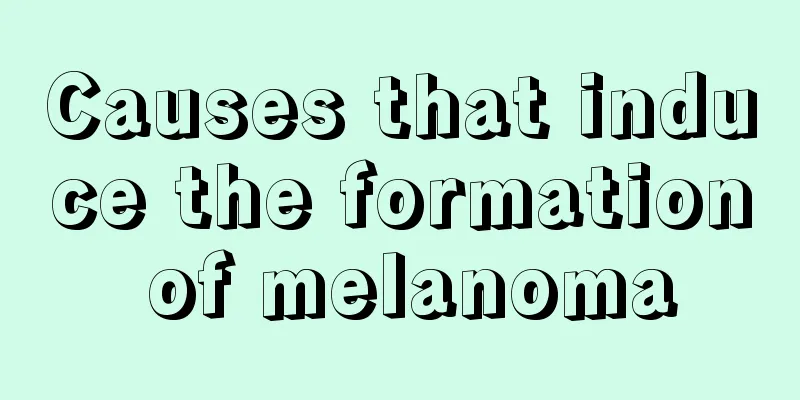Clean tonsil stones

|
Everyone has tonsils and knows about tonsillitis, but most people don’t know that tonsils can also have another disease: tonsil stones. There are crypts of varying sizes, depths and depths on the tonsils. When we eat, some food residues and undigested food will enter these crypts. Over time, these things harden into stones, which are tonsil stones. This type of tonsil stones may not cause any harm in the short term, but will cause inflammation over a long period of time, destroying the nerve tissue in the pharynx and causing greater pain. Treatment 1. For more stubborn and severe tonsils, use antibiotics to treat them. Penicillin or erythromycin can treat tonsil congestion but cannot eliminate the cause, which is food residue. 2. You may consider using laser treatment to remove tonsil stones. Laser therapy and curettage are effective but do not prevent stone regrowth. 3. Consider a tonsillectomy. This operation is relatively simple and easy. Although tonsils are meant to prevent infection, studies have found that people without tonsils are less likely to be infected, so tonsils do not seem to have any benefits. 4. Rinse your mouth with mouthwash after eating. Some stones are formed by food residues in the tonsil holes after eating, so be sure to rinse your mouth after eating. Rinsing your mouth not only improves the health of your teeth and gums, but it also helps prevent the formation of tartar. Dietary considerations 1. Patients with tonsil stones must eat a light diet to prevent colds. It is recommended that they must quit smoking and drinking. The key is to drink plenty of water and pay attention to maintenance. 2. The patient's diet should be light, and it is advisable to eat foods that are rich in water and easily absorbed, such as thin rice soup (with salt), fruit juice, sugarcane juice, water chestnut water (powder), mung bean soup, etc. It is advisable to eat fresh vegetables, fruits, beans and nourishing foods, such as green vegetables, tomatoes, carrots, soybeans, tofu, pears, honey, etc. Suitable food 1. You can eat pears when you have fever or sore throat. Pears have the effects of reducing fever, moistening the throat and relieving pain, which can alleviate symptoms. Pear juice also has the effect of relieving cough and reducing phlegm. Slice a pear, squeeze the juice and freeze it to make it easier to eat. If you have a fever and are extremely afraid of cold or prone to diarrhea, it is best to drink hot pear juice. 2. When you feel something unusual in your throat, you can eat kumquats. Compared with other sour fruits, kumquat peels are quite sweet. Kumquat peel is rich in nutrients, contains vitamin C and calcium, and can eliminate tonsillitis. Causes A small group of bacteria usually accumulates in the postnasal mucus in the tonsillar crypts behind the tongue. Simple brushing and gargling cannot effectively remove these bacteria. If the bacteria stay in the crypts for a long time, insoluble inorganic salts such as calcium and magnesium will be deposited in the tonsillar crypts, thus forming stones. |
<<: Moxibustion for Gallstones
>>: What is melanosis coli? How to diagnose and treat?
Recommend
How long can you live with early liver cancer
If patients with early-stage liver cancer can rec...
Simple tips to help you keep your mind sharp
Scientists previously believed that brain growth ...
What are the early symptoms of prostate cancer
Prostate cancer is a common male disease. This di...
Effect of Herbal Medicine on Bone Cancer
Bone tumors can be benign or malignant. Malignant...
How many stages can liver cancer be divided into? How to check liver cancer for early detection
Liver cancer is a malignant tumor that mainly occ...
Chest pain after donating blood
Everyone is very familiar with blood donation. As...
Is vinegar and garlic effective in treating onychomycosis?
Friends who have onychomycosis can treat it by so...
How to store grapes in the refrigerator
In summer, lying in bed, turning on the air condi...
Experts will give you a detailed introduction to the advanced symptoms of bladder cancer
Bladder cancer is a common malignant tumor in the...
What medicine should I take for bad breath caused by spleen deficiency and stomach heat? How to treat bad breath
There are many reasons for bad breath, the most c...
Will cervical cancer be passed on to daughters?
Endometrial cancer is a malignant tumor that affe...
What are some tips for bent legs after ligament reconstruction?
Ligaments are the part that people pay the most a...
Can small cell lung cancer heal itself? Experts: If it cannot heal itself, three types of treatment must be used
Small cell lung cancer cannot heal itself. If not...
What are the symptoms of bladder cancer?
What are the symptoms of bladder cancer? Do you k...
What are congenital eye diseases
There are many types of eye diseases, some are co...









